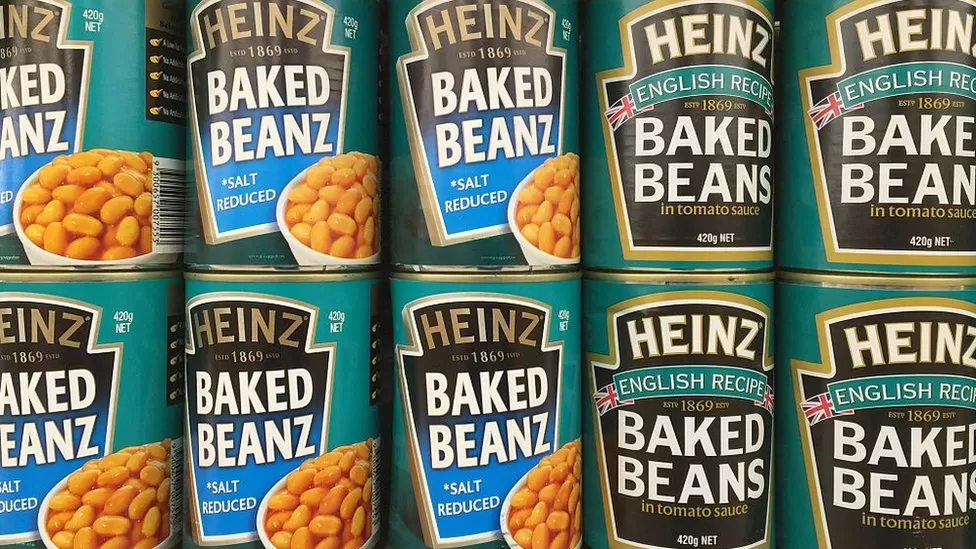
Trostre Tinplate Works celebrates 70th anniversary
The company behind the tin used in Heinz baked beans cans is showing no signs of reaching its best before date as it celebrates its 70th anniversary.
Tata Steel's Trostre Tinplate Works first opened its doors in Llanelli, Carmarthenshire, in 1952.
And with orders piling in, one manager said the firm could be around for another 70 years.
Some of its 600 workers are the third generation to have worked at the plant in the town, once nicknamed Tinopolis.
The Carmarthenshire site has been working full throttle after a surge in demand for canned goods driven by Brexit and Covid stockpiling, one boss said.
It turns out about 400,000 tonnes of tin, chrome and polymer-coated steel a year for everything from canned food to aerosols.
Operational support chief Richard Jones has been there since 1991, when he began in the technical department aged 16.
His grandfather began "on day one" before he was joined in turn by his son. They each served 30 years.
"I have now outdone them both and been here for 31 years," Mr Jones said.
The Trostre works was built in the late 1940s after other local tin mills closed, leaving thousands of people looking for work.
Mr Jones said the plant had a community spirit thanks to its local workforce.
'Connection to the community'
"If you look at our staff demographics, they are all within the local area," he said.
"That is really important to us, to have that connection to the community."
Steel from the Port Talbot works is transformed into coils of tinplate at the site.
They are then delivered to customers who press it into cans.
Despite concerns about the future of steel production in Wales, Mr Jones said Trostre's order book was healthy.
He believed this was down to "the current environment".
"People will go towards foods that they can keep in the cupboard that keep fresh, retain their goodness, and are good value as well," he said.
"So our market is very, very full at the moment, and we hope to be like that for the next 70 years."
During Covid staff were classed as key workers.
"It was really important for us to be able to keep supplying the marketplace during that time," Mr Jones said.
Reusing household waste
"For obvious reasons - there was a lot of rush out there, there were a lot of shelves being emptied, and we had to make sure we played our part in refilling them," he said.
With the UK rate for recycling steel packaging at 78%, reusing household waste was crucial for the plant, according to recycling manager, Nicola Jones.
"All of the material that leaves our doors in Trostre gets made into packaging steels and all of that packaging can be recycled back into new steel," she said.
BBC
